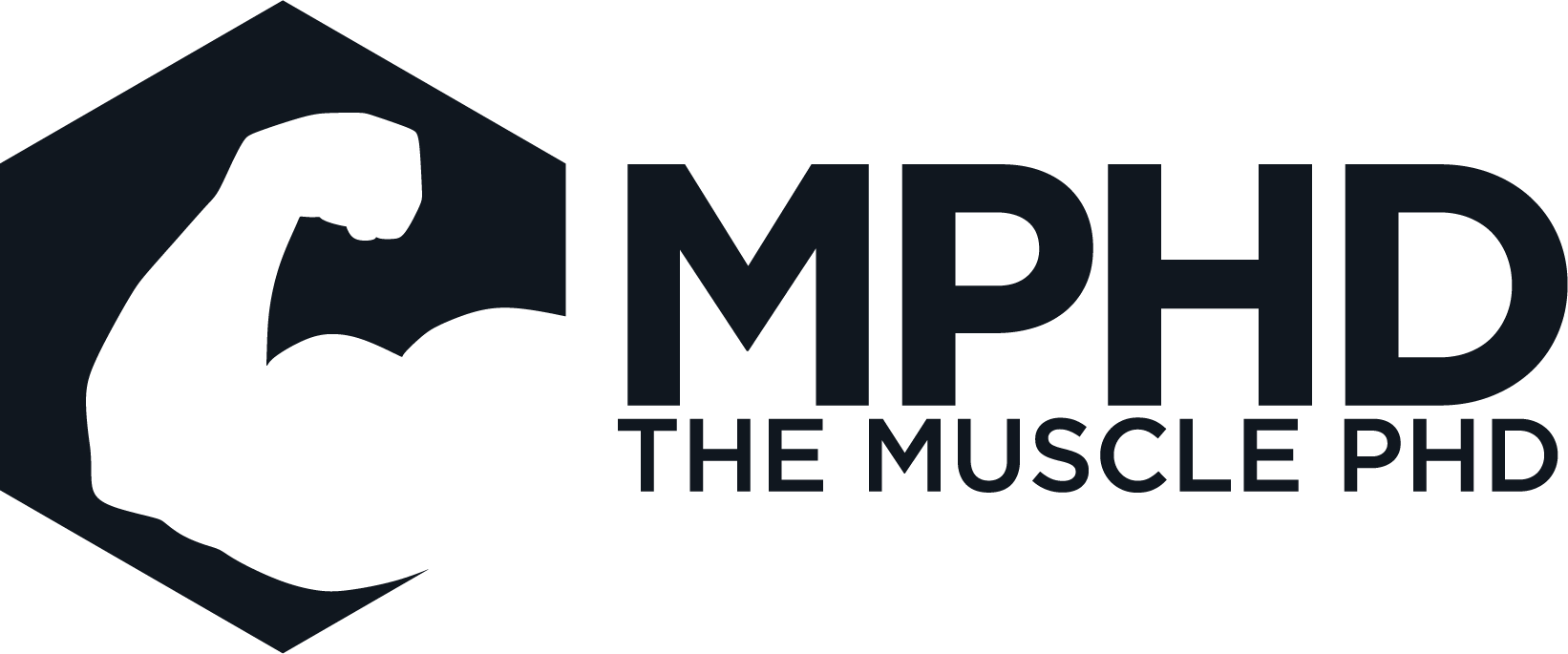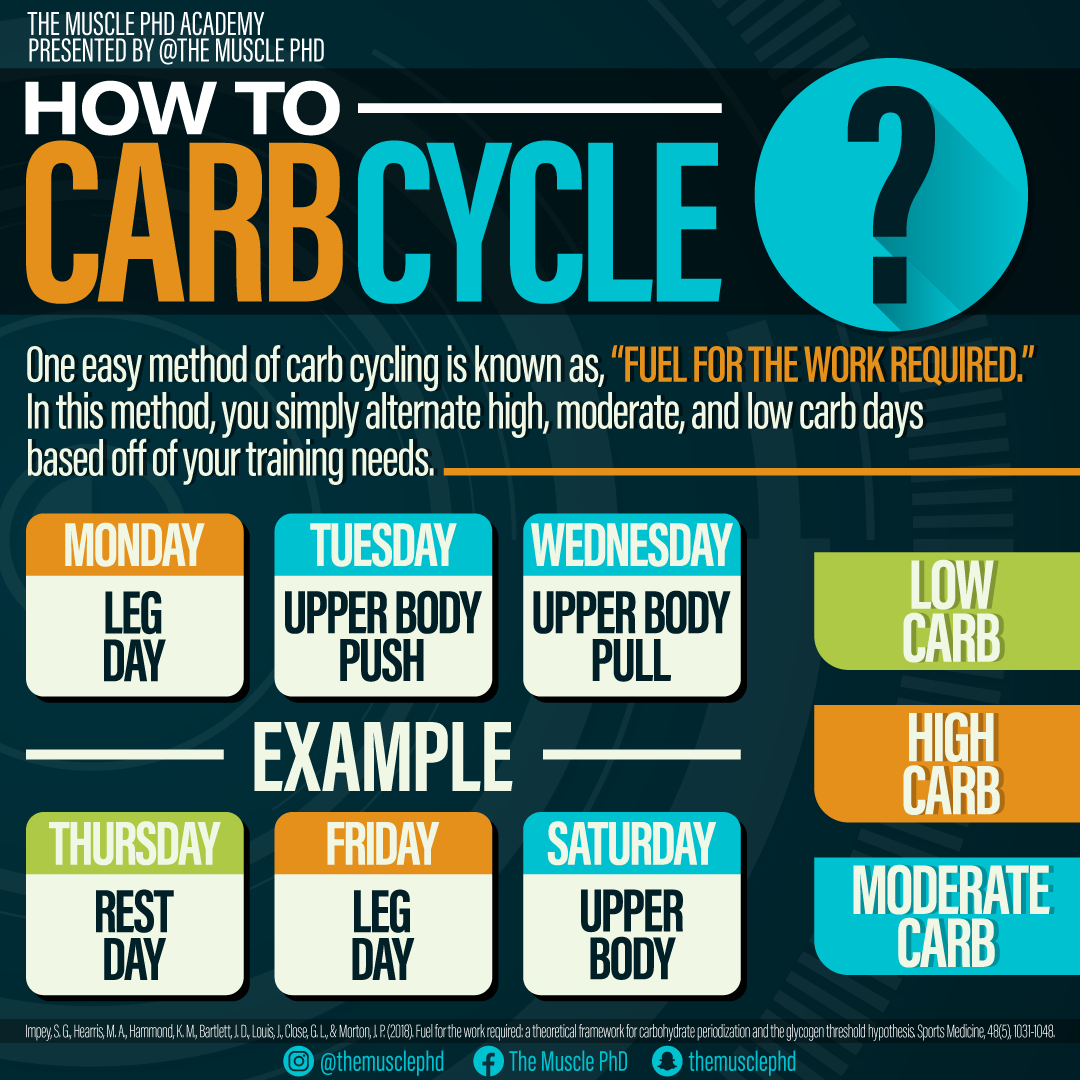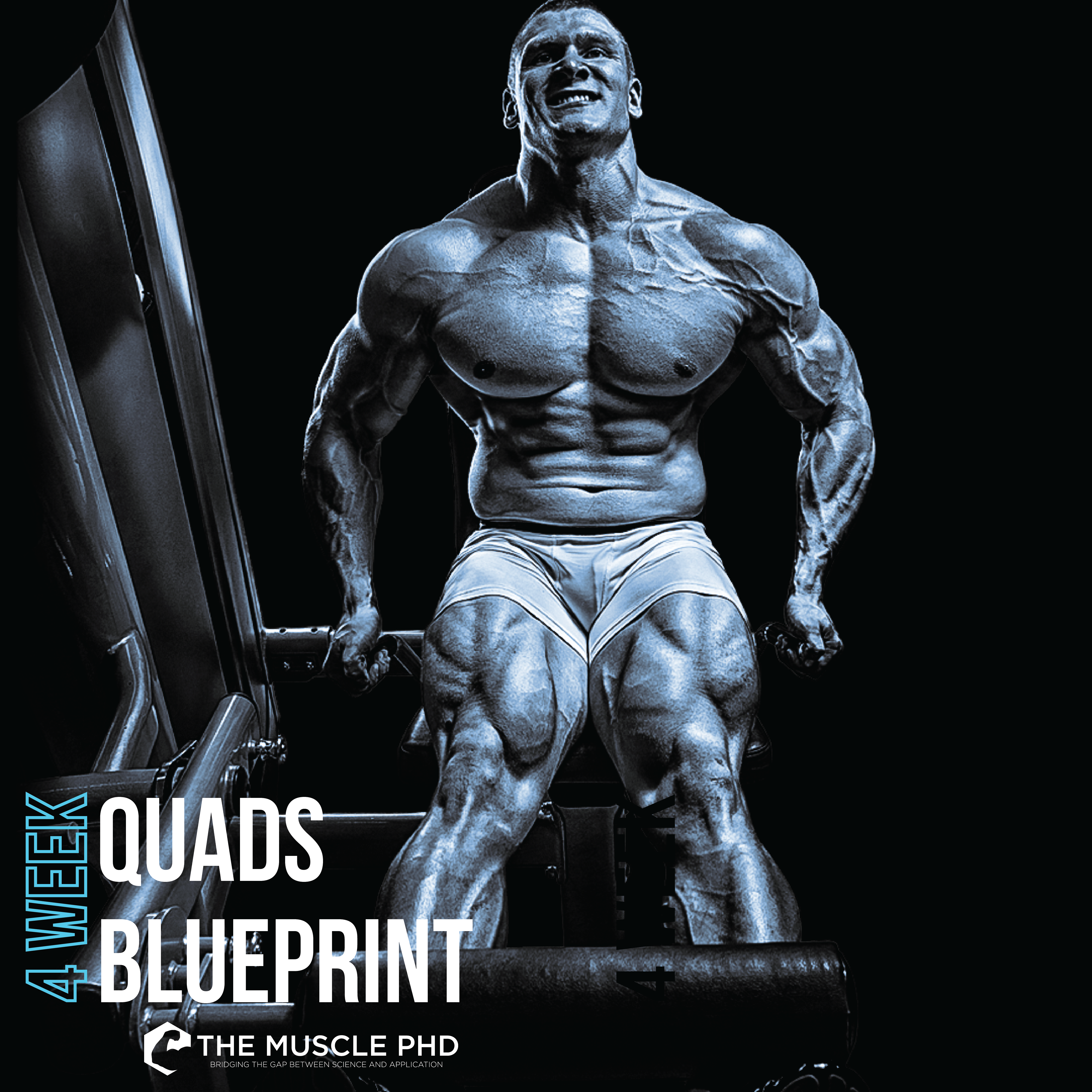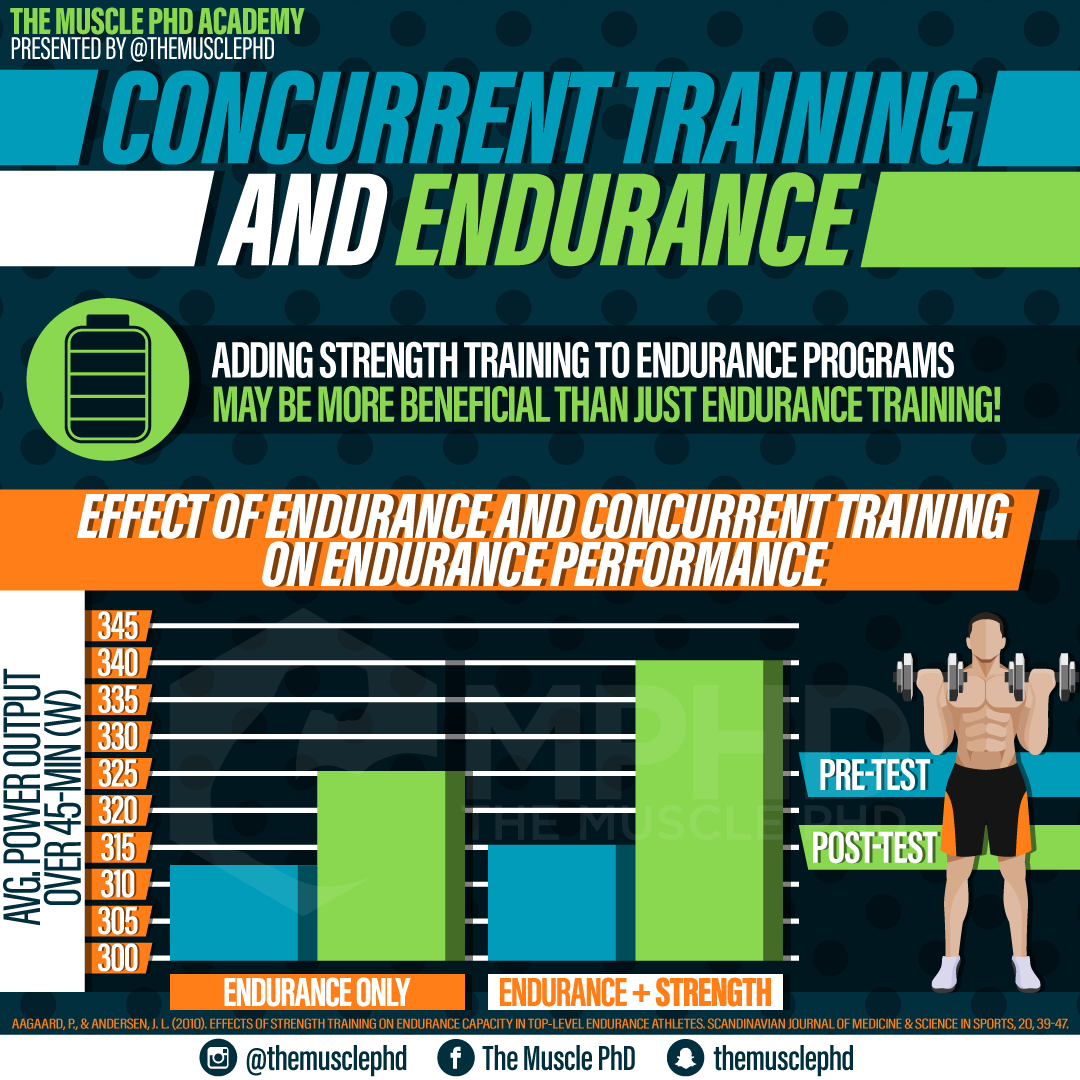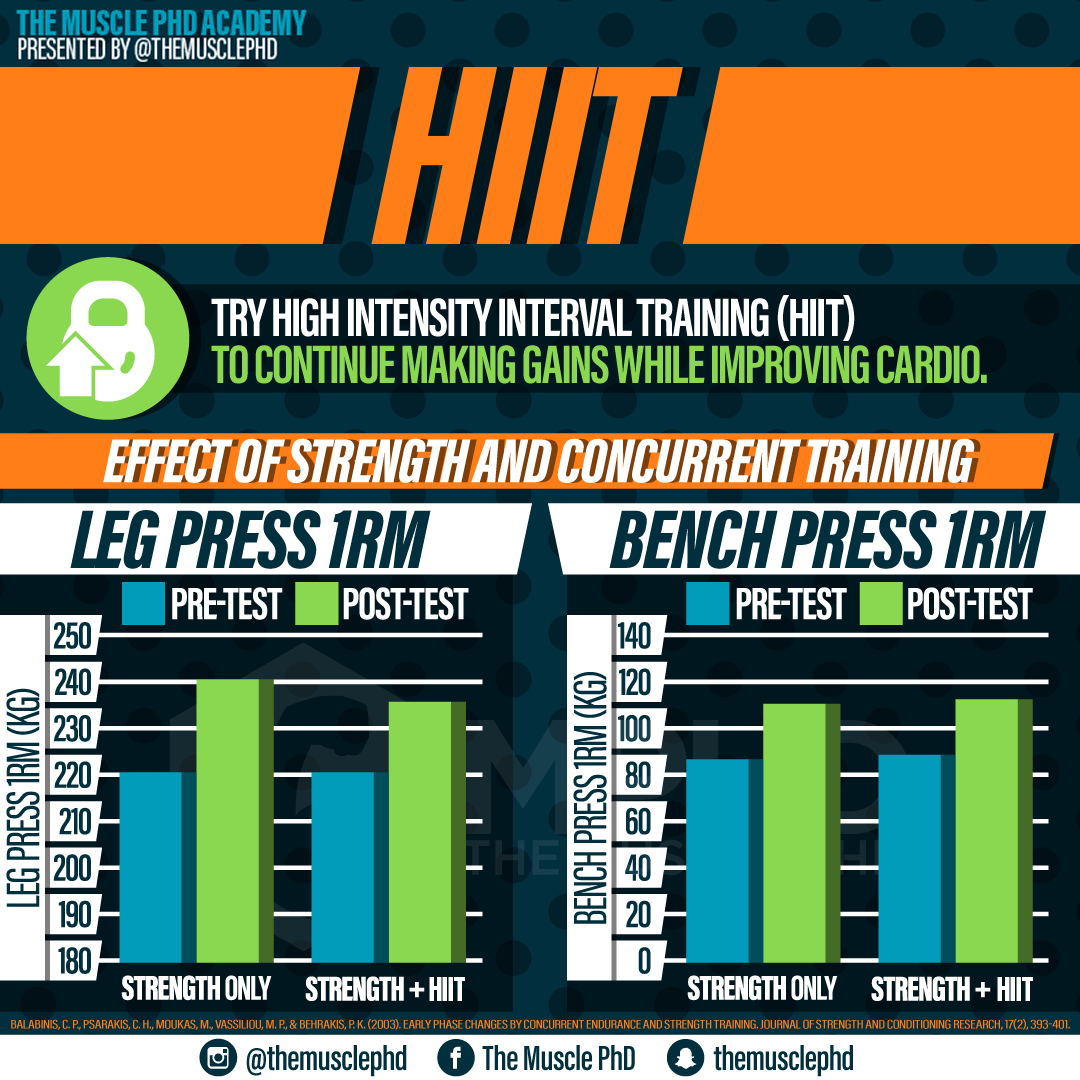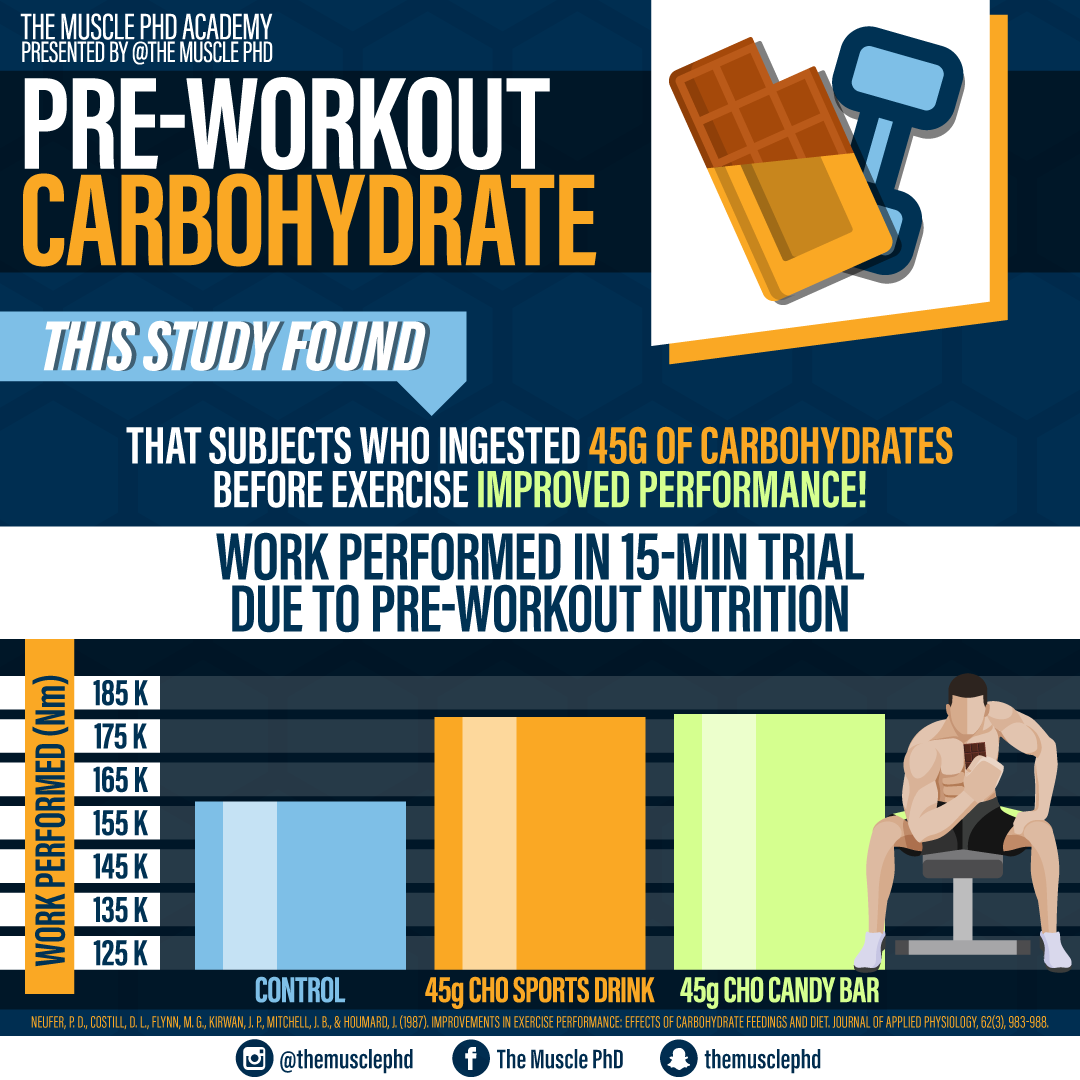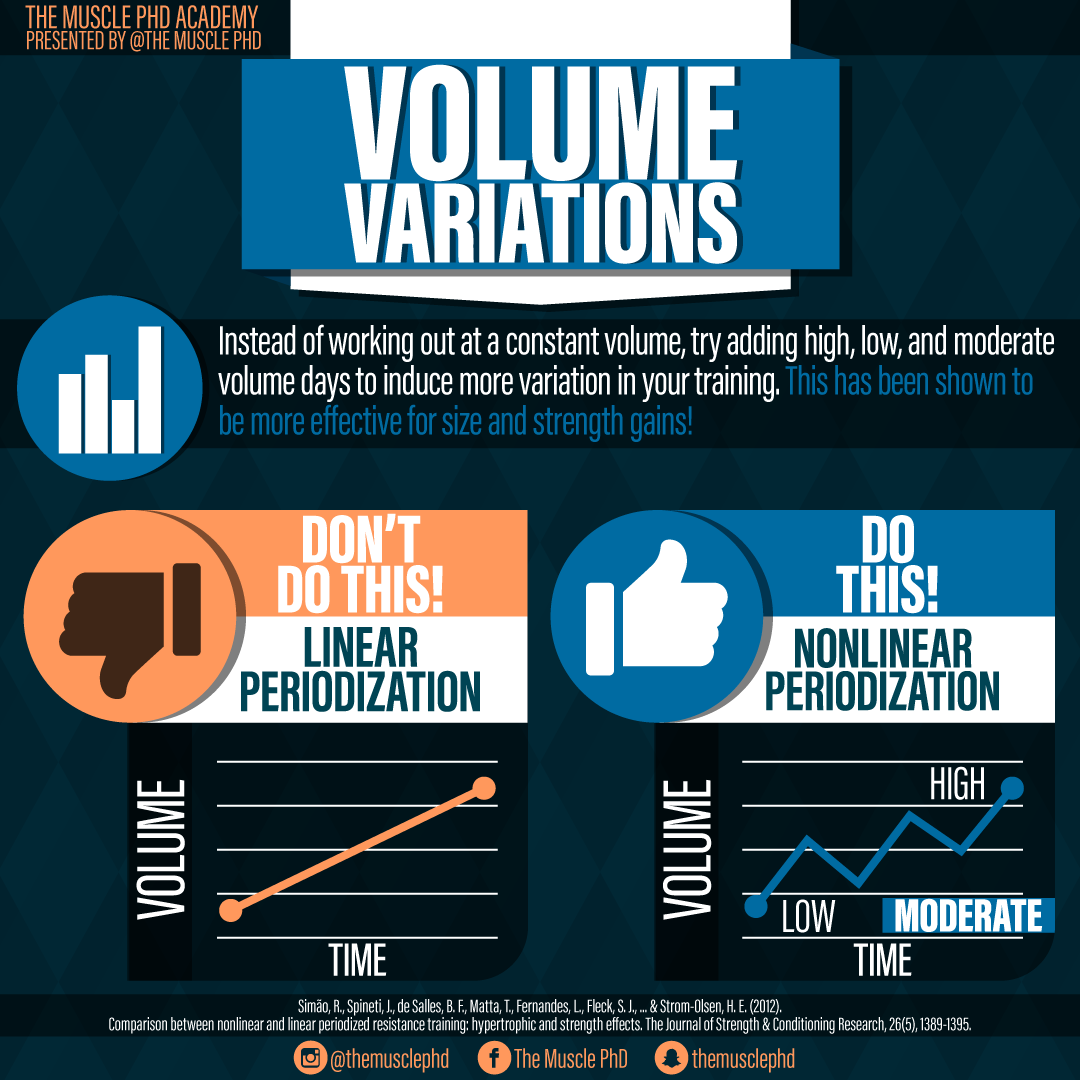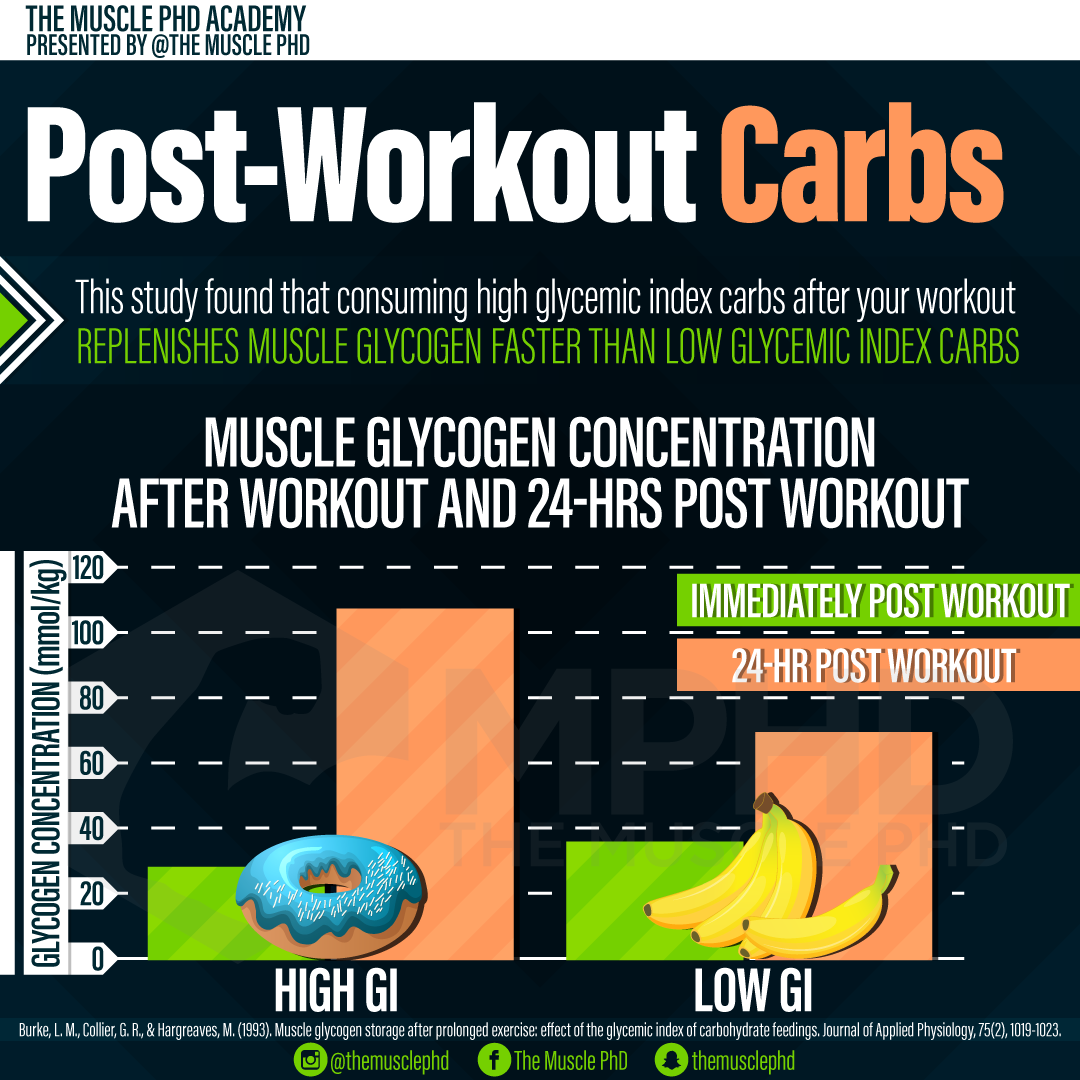Summary: There’s a few different methods of carb cycling, but most of them are designed to optimize performance in endurance athletes. Since bodybuilders or powerlifters don’t fall into that category very well, how should these athletes go about carb cycling?
The best strategy for most bodybuilders and powerlifters would be the, “Fuel for the Work Required” method. Essentially, this method helps you plan your carb intake based off of your activity in each day during the week. With this in mind, your high carb days would fall on the days where you do your highest training volume; this would typically be a leg day or an absolute crusher of an upper body workout. On the days in which your training volume is low (i.e. rest or light activity), the, “work required” is much lower and, therefore, doesn’t require as much fuel. With this in mind, cycle in your lower carb days on rest days or active recovery days.
Why would a bodybuilder or powerlifter carb cycle? First, it’s a good method to control your daily calories throughout the week. Second, this method can improve fat oxidation during training and has even been shown to lead to greater fat loss compared to a normal diet (Marquet et al. 2016). Therefore, carb cycling can be a solid choice for those looking to optimize body composition, but that doesn’t mean it’s going to work wonders for everyone. If your diet is mostly garbage, carb cycling isn’t going to be a magic key that unlocks your abs.
Is carb cycling optimal for muscle growth? We don’t have any research on the matter yet, but from a theoretical standpoint, it’s probably not. We know that a calorie surplus is important for maximizing muscle growth (Slater et al. 2019) and utilizing a carb cycling plan might leave you with some days at calorie maintenance or even a calorie deficit. In addition, while carbs don’t play much of a role in protein synthesis (Staples et al. 2011), they do play a small role in reducing protein breakdown (Borsheim et al. 2004). In addition, carbs can help provide the calories needed to repair and grow muscle fibers that are damaged from training. All-in-all, carb cycling probably isn’t better for muscle growth than a normal diet, but we have yet to see research diet confirming or disputing this theory.
Based on:
Additional Reading:
